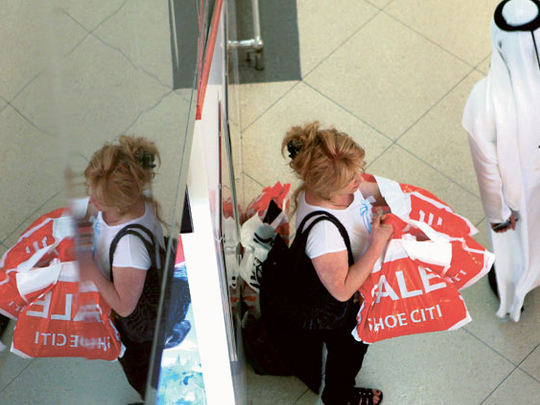
Dubai: The UAE's purchasing managers' index (PMI), a composite indicator of the performance of the non-oil private sector, slipped slightly from 52.4 in January to 52 in February.
The index, compiled by HSBC Holdings and Markit Economics, signalled a further modest improvement in the operating conditions of the UAE non-oil private sector. Reflecting cautiously optimistic sentiment, output was up moderately despite robust expansion in new orders.
"The ‘whole economy' PMI index, which includes private sector services and manufacturing but not oil, fell in February. This is still higher than December's reading of 51.7 and above the critical 50 mark which, in theory at least, separates expansion from contraction," said Hirsh Middle East Economist in an emailed comment.
HSBC said the latest index figure was broadly in line with that recorded over the last four months, albeit below the series average.
New orders grew strongly in February. Improvements in both domestic and foreign demand were indicated by panellists and the rate of new export order growth accelerated to a four-month high. An increase in new clients from African and Middle Eastern countries was reported by panellists.
Survey members also said they felt the wider economic environment had improved, with total new business growth for the month above the survey average.
To accommodate the continued expansion in new orders, non-oil private sector firms raised output and increased input buying in February.
"The strong new order score is encouraging and suggests that growth may begin to build pace in the months ahead. For now, though, the February reading points only to stabilisation and paints a picture of an economy still operating below capacity," said Simon Williams, chief economist for Middle East and North Africa at HSBC.
Job creation across the non-oil private sector remained only marginal in February. Furthermore, the average rate at which head counts have risen since December was the slowest of any three-month period since the survey began in August 2009.
Of the 7 per cent of monitored firms that had hired additional staff in February, a number put this down to positive expectations for new order growth.
"The weak employment growth and wages readings are a particular worry while data showing that producers are unable to pass on higher input costs suggests their pricing power is still very limited and that their margins remain under pressure," said Williams.
Driven by stronger rises in both purchasing prices and employment costs, overall input price inflation faced by private sector companies accelerated to a three-month high in February. Latest data also show that businesses' profit margins remain under pressure. The output price component increased only slightly to 50.4 from 50.3 in January, but the input price component jumped to 56.8 from 55.1.
As input prices are rising at a much quicker pace than output prices, businesses are seen absorbing higher input costs in their profit margins.
Analysts said while the overall external environment is positive for the UAE economy, the positive impact is largely offset by a weak domestic market.












